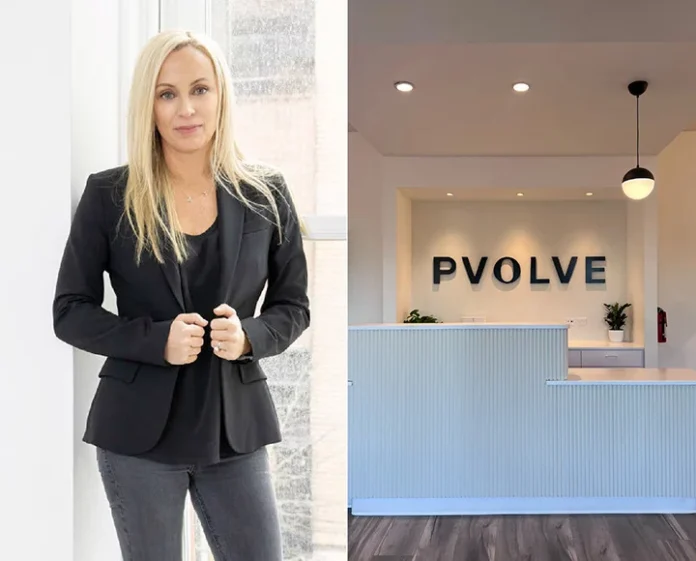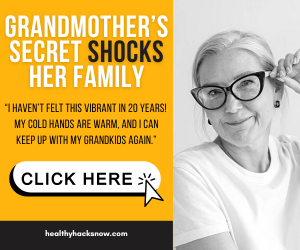What if your workout didn’t demand more grit but more intuition? That’s the approach Julie Cartwright champions as president of Pvolve, the fitness method disrupting the go-hard-or-go-home mentality with a science-backed, strength-driven alternative that actually honors how women move and feel.
After nearly two decades in entertainment marketing, Julie pivoted into wellness with a clear purpose. She set out to build a brand that puts women first in every way, from hormone-aware programming to a franchise model where 90 percent of studio owners are female. With clinical research, patented equipment, and Jennifer Aniston as a passionate partner, Pvolve is proving that low impact can still mean high results.
We sat down with Julie to talk about reshaping the industry from the inside out, the power of listening to your body, and why energy is the ultimate currency when it comes to living well.
Living Well with Julie Cartwright
Pvolve stands out for listening to women’s bodies rather than pushing through them. How did you shape a brand philosophy that honors that nuance—especially in a culture that still glamorizes ‘go hard or go home’? We started Pvolve by really listening to what women were asking for—and what they weren’t getting from traditional fitness. The industry has long pushed the idea that harder is better, that exhaustion equals success—but we’ve never believed that. From the beginning, our goal has been to offer a smarter, more supportive way to move: one that’s backed by science (clinical evidence), built around how the body actually works, and designed to help you feel good long term. Pvolve isn’t just a workout—it’s a whole new way to move that delivers real strength, mobility, and stability without sacrificing how you feel in the process. It’s a method that evolves with you, proving that when you move with purpose and intention, the results go far beyond your workout alone.
You started your career in entertainment marketing—how did that experience shape your approach to brand building in the wellness space? My years in entertainment marketing were basically a focused on one thing: know your people. Whether I was marketing our blockbuster films or a new workout, I learned that you win when you understand your audience, earn their trust, and then absolutely deliver on your promise.
At Pvolve, that promise is simple—real, lasting results—especially for women the industry has too often overlooked. So we’ve built the brand to feel both “wow, I want in” and “hey, these are my people.” That shows up in everything we do: straight-up science, partners who share our values, and every digital, studio, and real-life touchpoint designed around our community’s actual needs. Knowing your audience is great; honoring them in every decision is how you keep them for life.
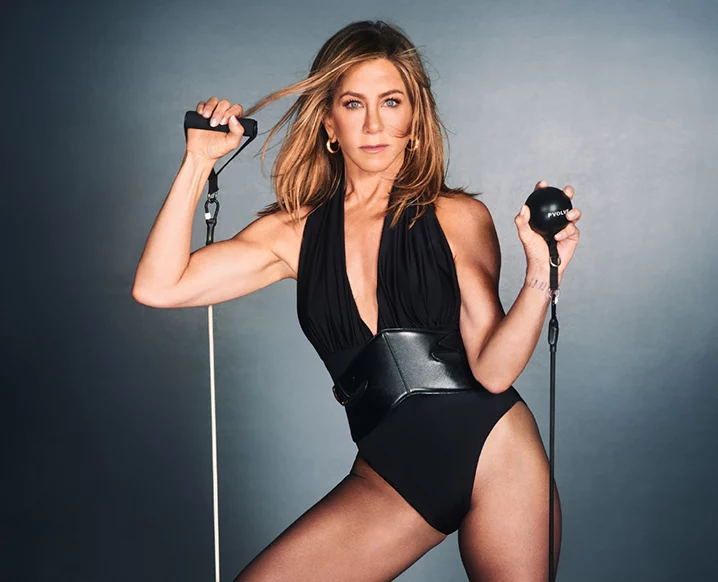 What inspired your pivot from the world of film to fitness? Was there a moment that made it clear it was time for a change? Leaving my 18-year career in entertainment was a leap—but it was one I couldn’t avoid. Rachel Katzman, the founder, had a story I believed in. I had always been involved in fitness, but when Rachel came to me with the early vision for Pvolve, I saw a real gap in the market and I had to get in.
What inspired your pivot from the world of film to fitness? Was there a moment that made it clear it was time for a change? Leaving my 18-year career in entertainment was a leap—but it was one I couldn’t avoid. Rachel Katzman, the founder, had a story I believed in. I had always been involved in fitness, but when Rachel came to me with the early vision for Pvolve, I saw a real gap in the market and I had to get in.
I believed in Rachel, and even more so in her vision. It was clear to me that the world needed this approach—something functional and sustainable that delivered an amazing body, but better yet, a body that could function for the long term. It was a risk, yes—but one I’ve never regretted for a moment.
The fitness industry has long been dominated by male-led models. How have you worked to challenge that, both in Pvolve’s methodology and business model? When we first rolled out Pvolve, we weren’t waving a “women-only” banner—we simply put the method in front of real people and paid attention. Almost immediately, the women in our community told us how hungry they were for a program that respects everything their bodies navigate: monthly hormonal swings, pregnancy and postpartum shifts, perimenopause, you name it. That feedback was impossible to ignore, so we went all in on a women-first lens.
To be clear, that doesn’t mean men get left behind. In fact, the rule of thumb we live by is this: if a movement protocol is effective and safe for a woman—with all the variability her physiology brings—it will translate beautifully for a man. The reverse isn’t always true. That’s why we invest heavily in female-centric clinical research; women have been an afterthought in the scientific literature for decades because hormones are “messy,” and we’re determined to help change that narrative. Designing for her sets the highest bar, and when we hit it, everyone wins.
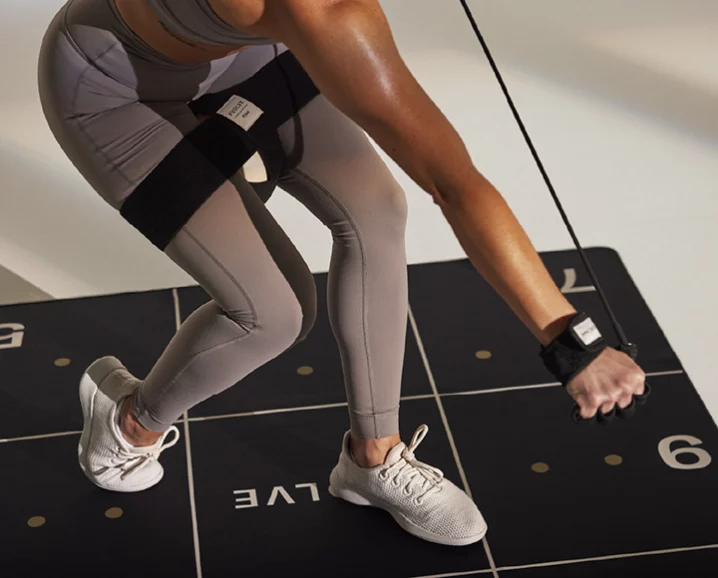 Franchising is a historically male-dominated business—but Pvolve now has 90% female franchise owners. Was that intentional from the start? What has that changed in the culture of the company? It wasn’t intentional, but it was absolutely expected. As women entrepreneurs ourselves, we knew we wanted to build a model that empowered other women to lead. We saw an opportunity not just to grow a business, but to create a movement powered by women, for women—especially at the local level, where community and connection matter most.
Franchising is a historically male-dominated business—but Pvolve now has 90% female franchise owners. Was that intentional from the start? What has that changed in the culture of the company? It wasn’t intentional, but it was absolutely expected. As women entrepreneurs ourselves, we knew we wanted to build a model that empowered other women to lead. We saw an opportunity not just to grow a business, but to create a movement powered by women, for women—especially at the local level, where community and connection matter most.
Our franchisees are deeply invested in their markets because they’re building something personal. They’re driven by purpose: helping other women feel strong, confident, and supported through every phase of life. That energy has shaped the culture of our brand in profound ways. It’s created studios that feel welcoming, inclusive, and mission-led—and it’s proven that when women lead, the business thrives.
What’s something that people often misunderstand about what makes Pvolve different—and how are you working to shift that perception? A common misconception is that because Pvolve is low-impact, it must be low-intensity or low-results—and that couldn’t be further from the truth – take one class and you will feel the intense muscle engagement we deliver.
Our method is rooted in functional movement and backed by clinical research. We train the body through all planes of motion and incorporate patented resistance equipment that activates both large and stabilizing muscles—creating a uniquely challenging, deeply effective workout.
I would add that our focus on mobility and stability is also a massive disruptor and not fully understood – yet! Every class incorporates strength, mobility and stability work to deliver a challenging, but energizing experience that supports your body today and for the long haul.
We’re continuing to shift perception through education and repetition – hammering home our differentiators at every opportunity.
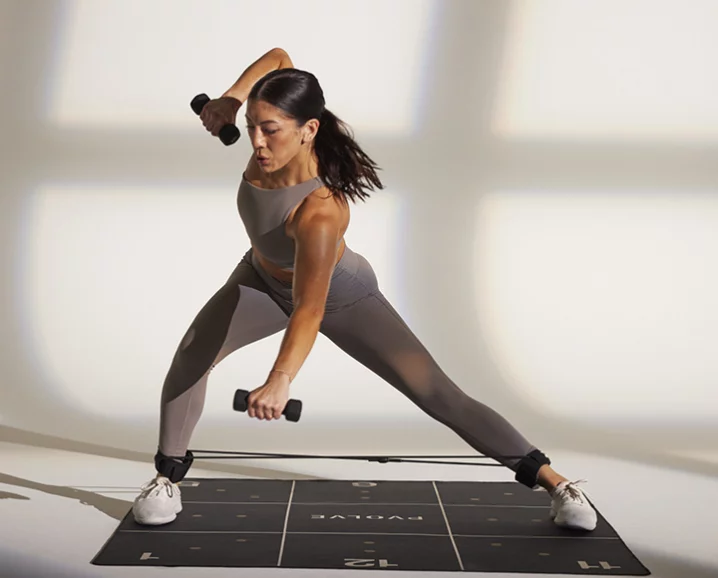 Pvolve’s recent collaboration with Jennifer Aniston has been huge. How did the partnership first come together, and what made her the right fit for this moment in the brand’s journey? Jen actually began as an anonymous member of our digital platform—she discovered Pvolve on her own and quietly started taking classes. It wasn’t until she had experienced the real impact of the method—both in how her body felt and how she moved—that she reached out to us.
Pvolve’s recent collaboration with Jennifer Aniston has been huge. How did the partnership first come together, and what made her the right fit for this moment in the brand’s journey? Jen actually began as an anonymous member of our digital platform—she discovered Pvolve on her own and quietly started taking classes. It wasn’t until she had experienced the real impact of the method—both in how her body felt and how she moved—that she reached out to us.
She’s an incredible fit because she represents the very woman we’re here to serve: thoughtful, wellness-minded, and looking for a smarter, more sustainable way to stay strong and feel good. Her partnership came at a pivotal time as we’re scaling our franchise footprint, and the visibility and credibility she’s brought to the brand has been game-changing. It’s rare to have someone of her caliber align with a fitness concept this early in its growth—and it’s something we’re incredibly proud of. Read our story on the collaboration here.
What advice would you give to female founders or executives who are trying to lead with innovation in industries that weren’t built with them in mind? First, get close to the problem you’re solving—sit with customers, hear their frustrations, and let those insights drive the roadmap. When you build something people genuinely need, it’s easier to cut through.
Second, hire people who challenge you and fill the gaps you have. Innovation rarely comes from a single voice; it comes from a team that’s ready to test, fail fast, and try again.
Finally, trust your gut. If an idea keeps you up at night—good or bad—dig in. In spaces that weren’t built for us, intuition is often our early-warning system that something big is hiding under the surface. Pair that instinct with data, and you’ll know when to push, when to pivot, and when to double-down.
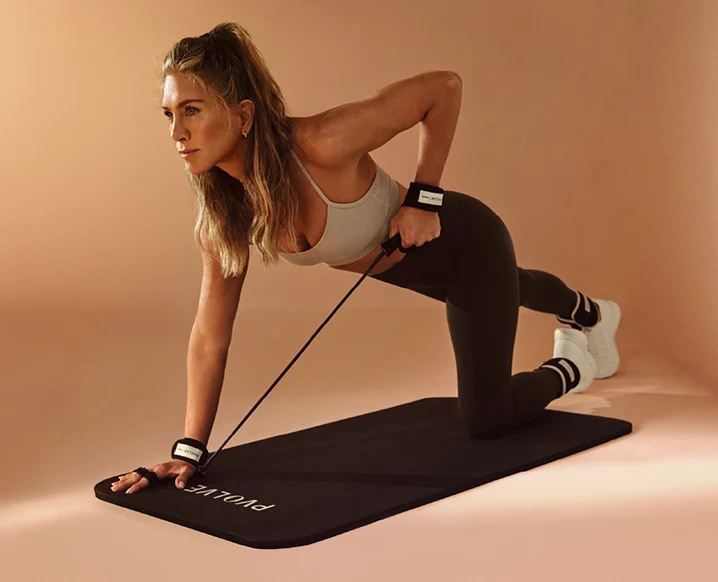 What’s a recent wellness discovery or tool you’ve added to your routine that’s been a game-changer? I am crazy about IV drips and peptides. i want to feel as great as possible to wake up and show up every day.
What’s a recent wellness discovery or tool you’ve added to your routine that’s been a game-changer? I am crazy about IV drips and peptides. i want to feel as great as possible to wake up and show up every day.
If we raided your fridge or desk drawer, what wellness snacks or supplements are always stocked? Eggs, cottage cheese and micro greens – love love love. Armra/ Nutrofol, etc too.
What’s one wellness ritual you never skip—no matter how busy the day? I progressively weight train with Pvolve and on my own- i am 49 and not messing around – i want to show up for my family now and in 20-30 years.
What’s the one podcast in your rotation right now that you think everyone should be listening to? Skinny confidential,
What does ‘living well’ mean to you in this season of life? Living well, for me right now, is all about energy—protecting it, generating it, and channeling it toward what matters most. I start by listening to my body: choosing movement that leaves me feeling strong instead of depleted, eating foods that truly fuel me, and carving out rest before exhaustion forces the issue.
It also means ignoring the “shoulds” If something drains me or feels off, I say no- alot and that is something that has changed for me, but my life now demands it.


